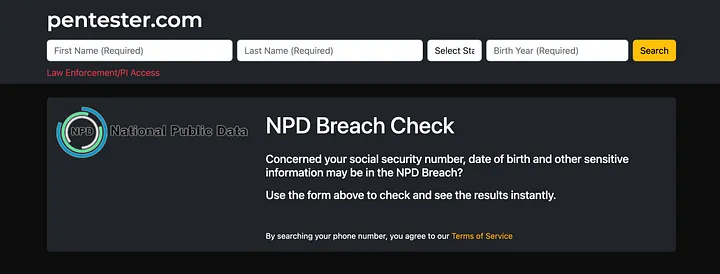Safeguarding National Public Data: Understanding Breaches and Securing Your Information
National Public Data Breach: A Critical Issue in Data Security
Since the modern world seems to consider information as one of the major forms of capital, violations of sensitive information are a critical issue. These breaches affect not only the privacy of sensitive personal or organizational data but also the credibility of many organizations and institutions. This article provides a preview of the National Public Data (NPD) breach, the likelihood of similar incidents, and measures that can be implemented to prevent such breaches and ensure safe data management.
Understanding National Public Data Breach
National Public Data (NPD) is a company that provides background check and public record services. This company handles large portions of customer’s identification data: Social Security numbers, phone numbers, names, surnames, and other critical identification data required in background checks.
Recent Breach Incident
The breach was claimed to have occurred in April 2024 by a hacker using the alias USDoD. The individual claimed responsibility for stealing billions of people’s sensitive data from National Public Data (NPD). This breach, as reported recently and in a lawsuit, compromised personal data on an unprecedented scale. Two weeks ago, the stolen data from NPD was distributed on one of the hacking forums for free, which significantly increased the security threats resulting from the leak.

Source: Hackread
The Impact of Data Breaches
The consequences of a national public data breach extend beyond immediate financial loss. These include:
- Loss of Trust: Public confidence in the ability of institutions to protect data can be severely undermined.
- Legal and Financial Repercussions: Organizations may face legal actions, regulatory fines, and significant costs associated with breach mitigation and recovery.
- Reputational Damage: Breaches can damage the reputation of government agencies and institutions, leading to a loss of public support and credibility.
How to Prevent Data Breaches
Data protection is not just a matter of integrating technology or having policies in place. It’s about a comprehensive approach. Here are some key strategies to prevent data breaches:
1. Implement Robust Security Measures
Employ advanced algorithms to secure data both at rest and during transmission. Modern security measures must be as advanced as the evolving cyber threats.
2. Regular Security Audits
Perform regular security audits and vulnerability analysis of your systems to help minimize the risks associated with data breaches.
3. Access Controls
Restrict information access according to the need-to-know principle. Ensure only authorized personnel can view critical information.
4. Employee Training
Regularly educate employees about security measures, phishing attacks, and other types of cyber threats.
5. Incident Response Plan
Develop and implement an incident response plan that outlines how to detect, contain, and communicate the breach to relevant parties in the shortest time possible.
6. Regular Updates and Patching
Ensure that all software and systems are updated with the latest security patches to protect against known vulnerabilities.
Securing Your Data: A Practical Guide
Here are some practical steps to ensure the security of your data:
- Use Strong, Unique Passwords: Employ complex passwords and change them regularly. Consider using a password manager to keep track of credentials.
- Enable Multi-Factor Authentication: Add an extra layer of security by requiring additional verification methods beyond just passwords.
- Monitor Your Accounts: Regularly review your financial and personal accounts for any unusual activity or unauthorized transactions.
- Secure Physical Devices: Protect devices with strong passwords and encryption. Avoid leaving devices unattended in public spaces.
- Backup Your Data: Regularly back up important data to a secure location to mitigate the impact of data loss or corruption.
Learn More and Stay Informed
For additional resources and insights into the security of National Public Data, visit npd.pentester.com. Created by cybersecurity expert Ryan Montgomery, this site provides valuable information on the latest vulnerabilities, security best practices, and prevention strategies. You can also check if your data has been exposed and verify whether your Social Security number has been leaked.
